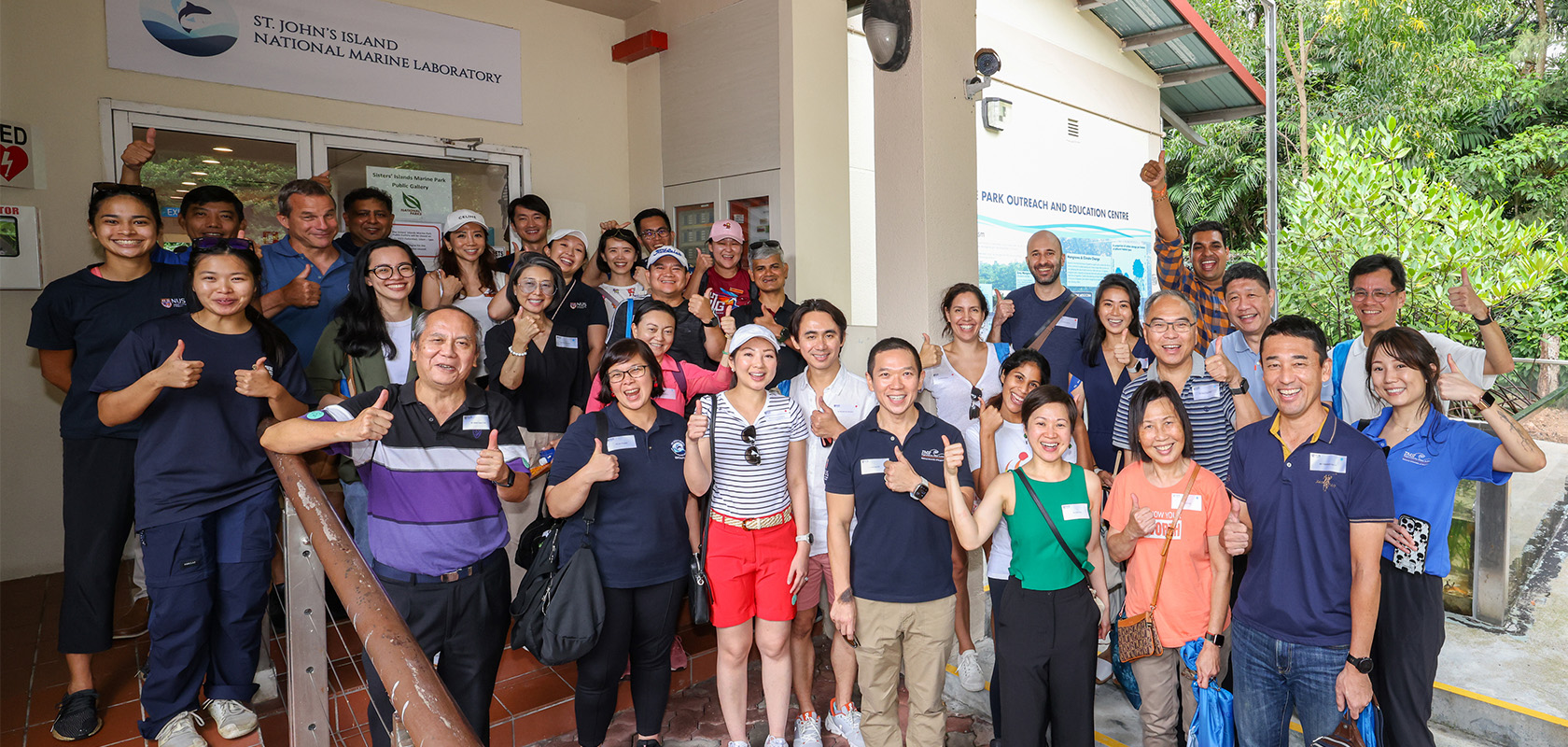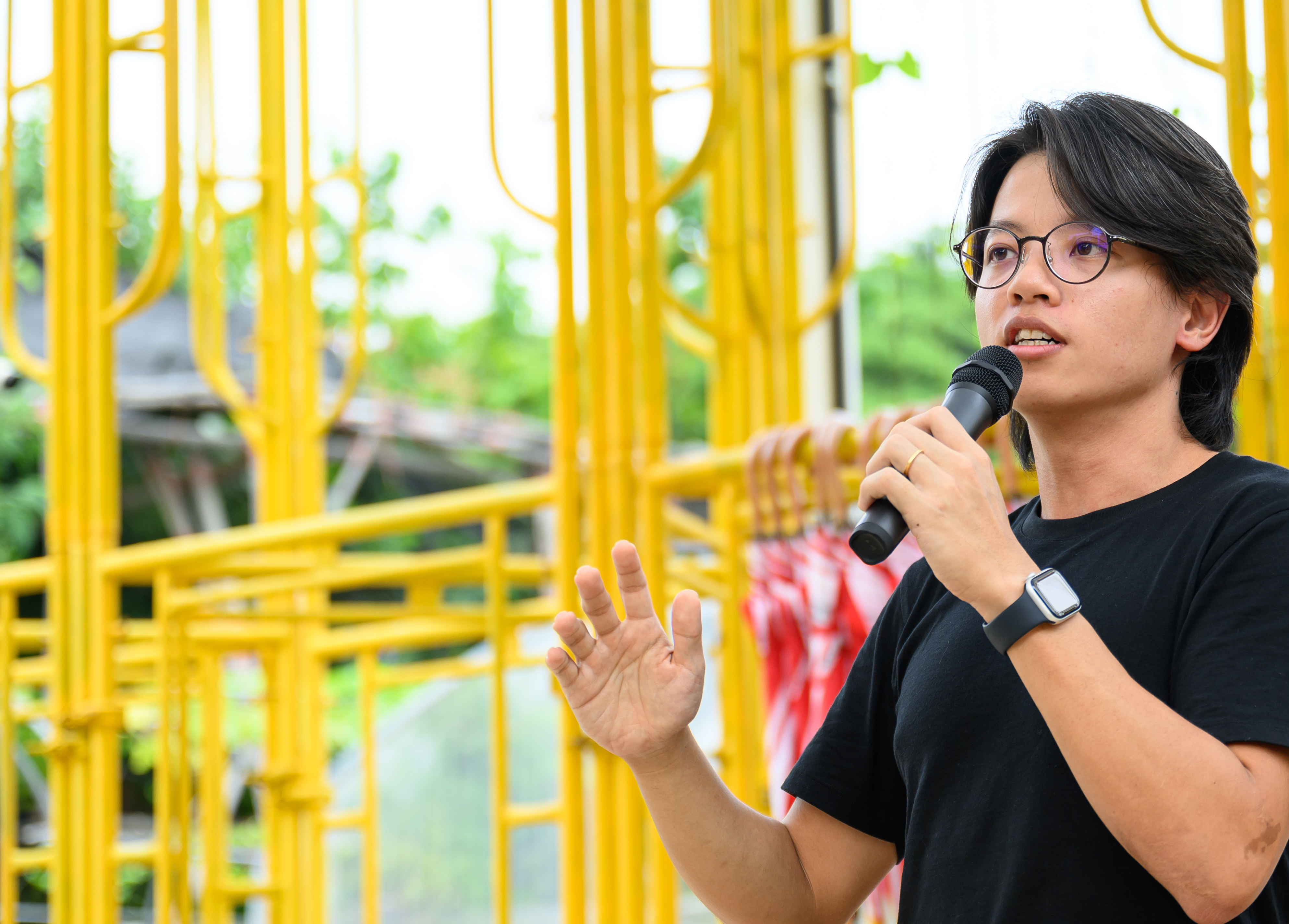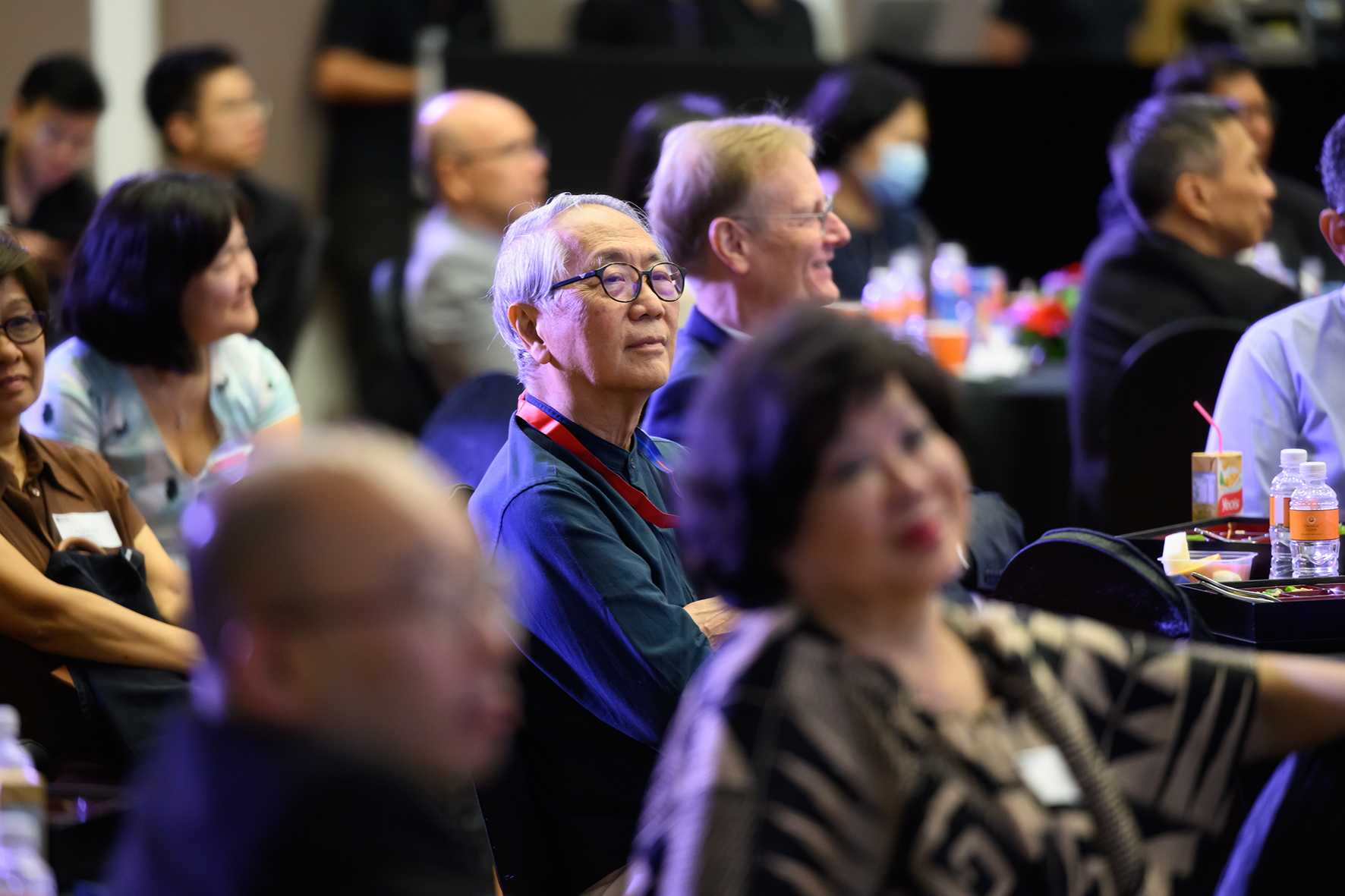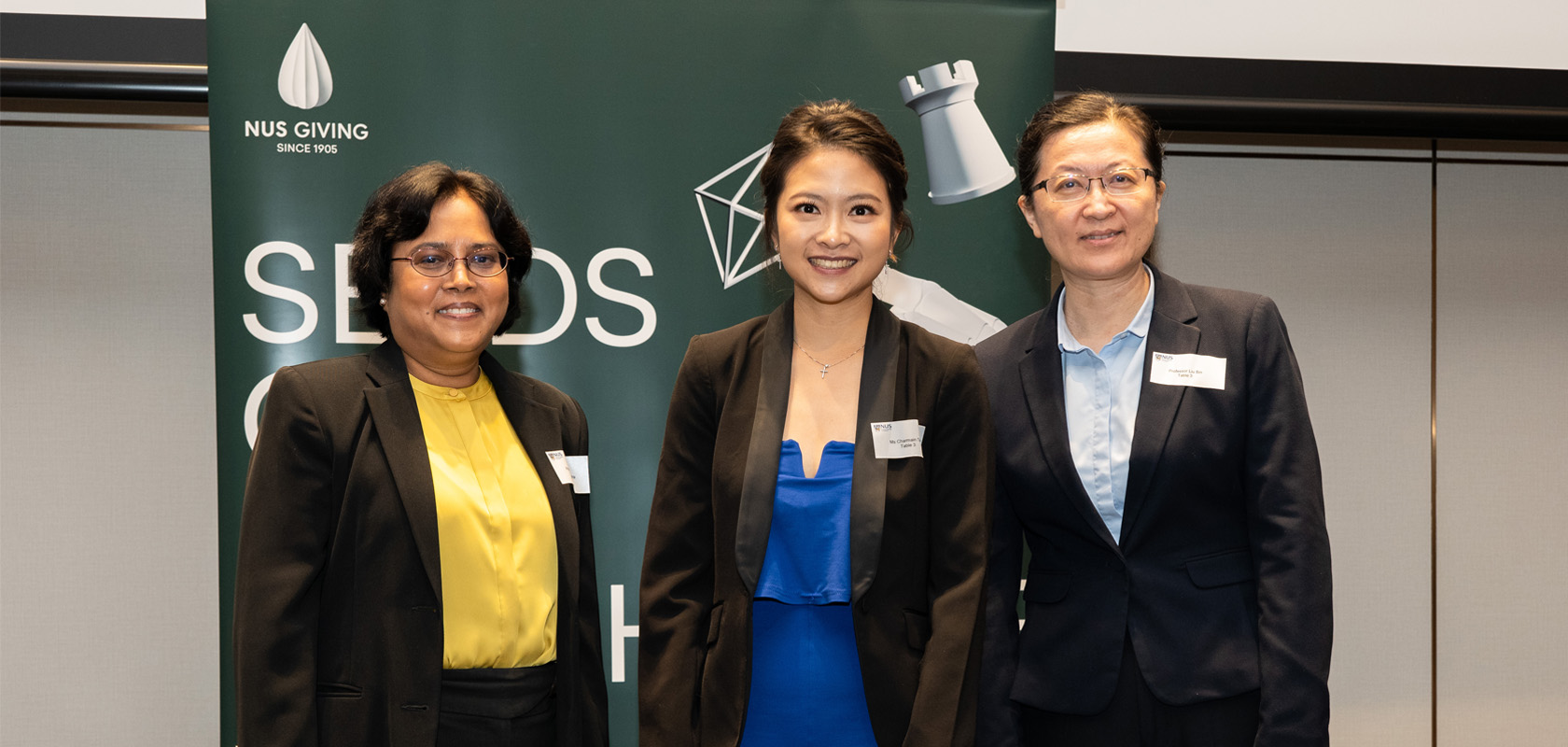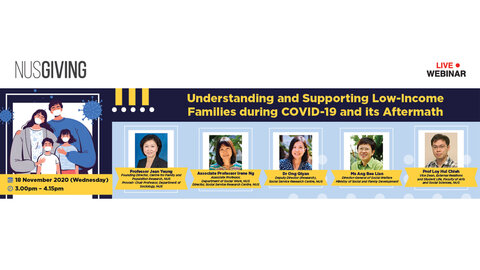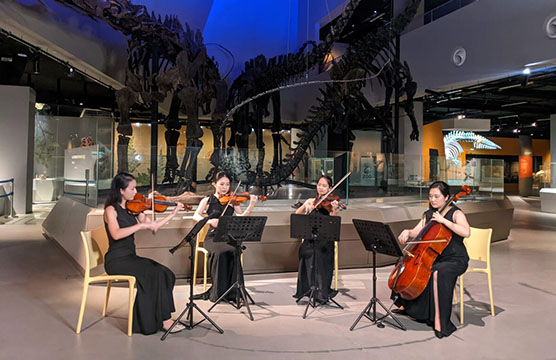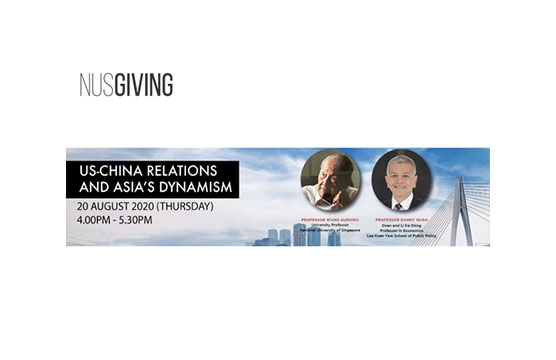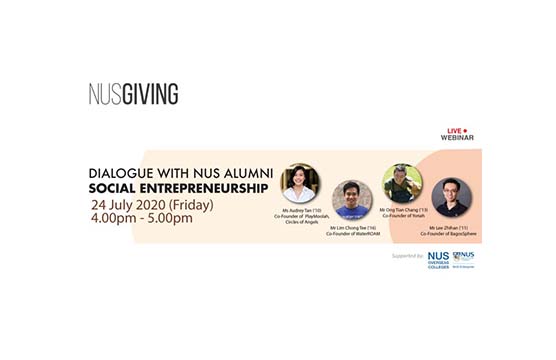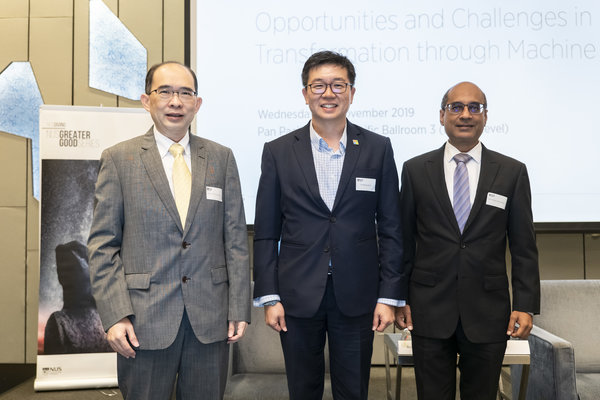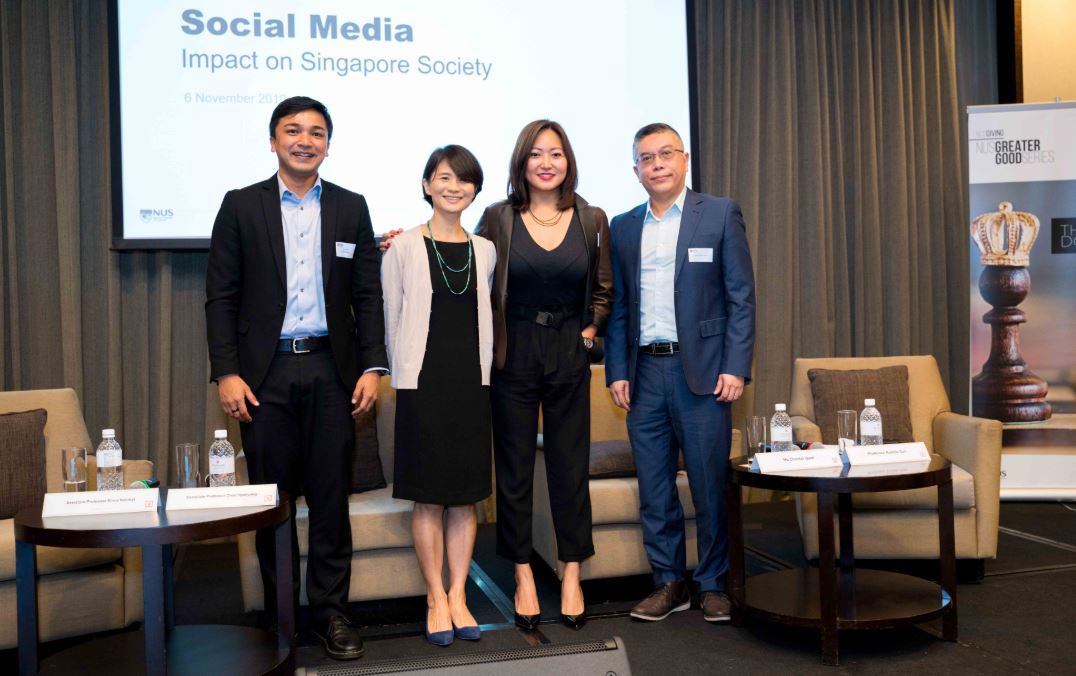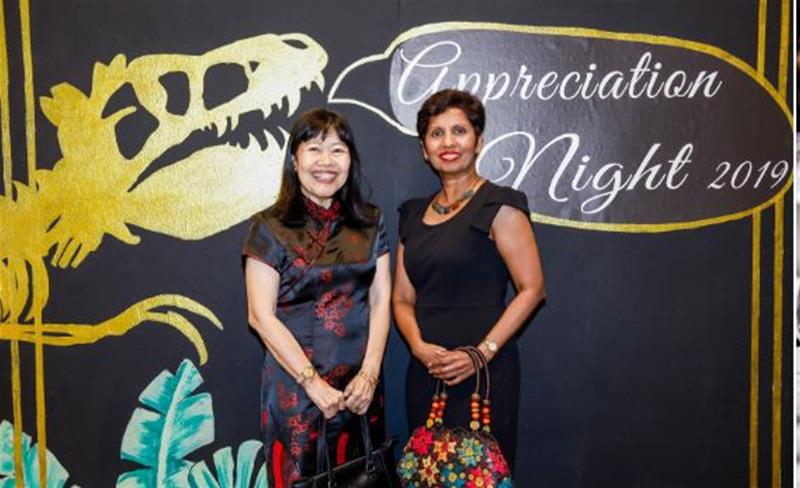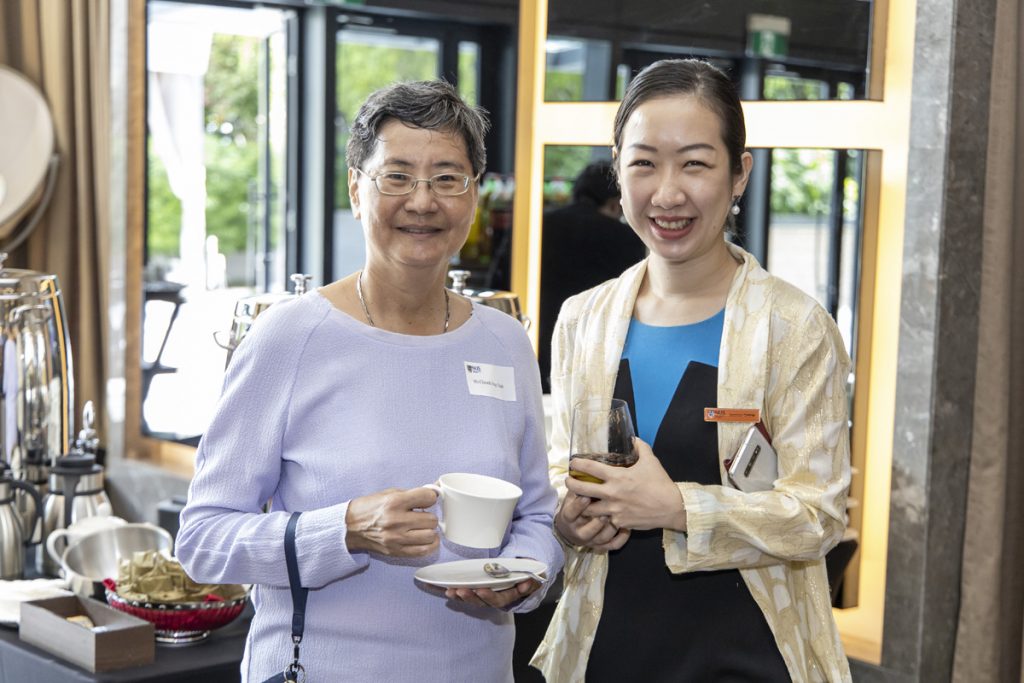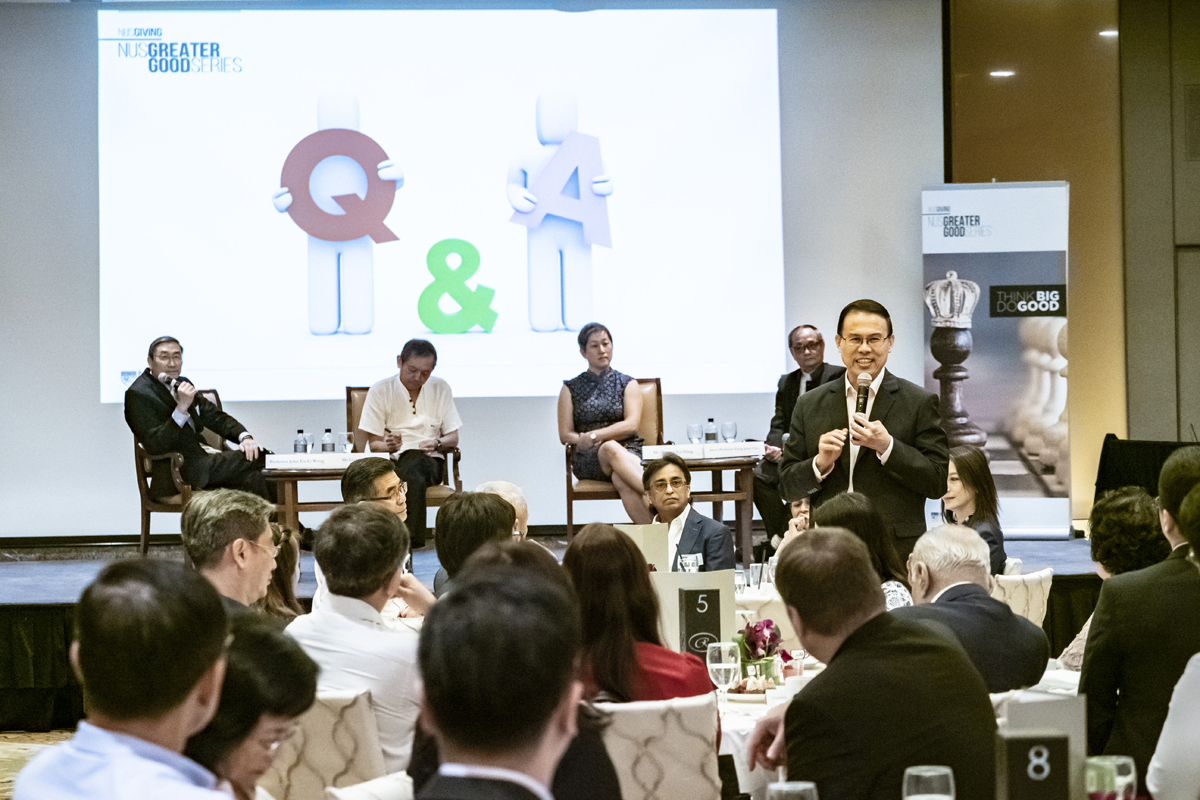NUS Giving Webinar Series – Food Security and Supply in the New Normal
Oct 14, 2020
The disruption, immediate challenges and the opportunities amid the uncertainties
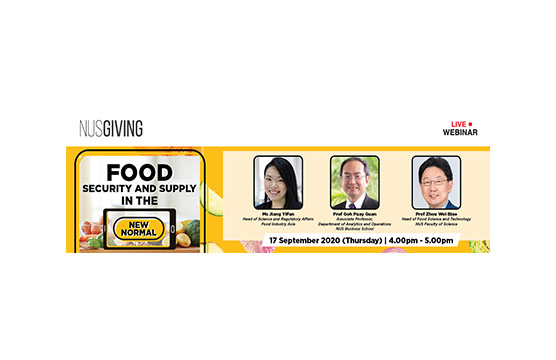
The COVID-19 pandemic has disrupted food markets globally in unprecedented ways, creating many immediate challenges. Yet what is remarkable, are the opportunities amid the uncertainties.
During the National University of Singapore (NUS) Giving Webinar titled Food Security and Supply in the New Normal, a stellar panel of speakers weighed in on these issues from their perspectives.
“Despite the challenges seen, the overall food supply chain in Singapore has remained intact. We do see quite a high level of resilience in the system during the pandemic,” said Ms Jiang Yi Fan (’12), Head of Science and Regulatory Affairs, Food Industry Asia.
Coming from an industry perspective, Ms Jiang talked about the supply chain challenges and consumer trends in the ‘new normal’, especially during the early onset of the COVID-19 outbreak.
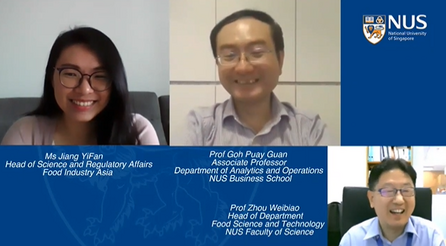
With bottlenecks in manpower, manufacturing capacity, transport and logistics, as well as momentous shifts in demand, Ms Jiang emphasised on the importance of the collaboration between stakeholders, industry associations and the government during this time.
While the impacts of the pandemic on food supply chains are still unfolding, several lessons have emerged.
“The way ahead for us in gaining supply chain resilience is to recognise the food sector as an essential service, much like the medical sector. This way, we can prepare for business continuity measures to ensure a sufficient food supply,” Ms Jiang elaborated.
The importance of supply chain resilience was echoed by Professor Goh Puay Guan, Associate Professor, Department of Analytics and Operations, NUS Business School.
“Food supply chains are usually long and extended. You can’t grow food only when you want it; food is perishable and production areas are far from the consumption areas. And because you can’t produce the goods on demand, food needs to be grown in anticipation of demand,” Prof Goh highlighted.
The challenges of existing food supply chains coupled with the impact of COVID-19 has forced companies and the government to think about their diversification and risk management strategies. Many companies have been trying to create solutions which include the diversification of sources, cold chain infrastructure, and accurate information tracking. Technology advancements such as vertical farming, cultured meat, and 3D printing, are also potentially changing the traditional paradigm of food production.
“Food has become a national security issue, with its impact dependent on both price and its availability at a critical time. Through this pandemic, it has become very clear that the stability of food supply will depend on the shelf life of food, and that is among the core of Food Science and Technology research at NUS. Technology-driven solutions might take more time to implement but it will be a strategic position for us to take moving forward. We are looking into ways to keep food, literally and ideally, forever,” concluded Professor Zhou Weibiao, Head of the Department of Food Science and Technology, NUS Faculty of Science.
Levelling up Singapore’s food supply resilience is in line with the Faculty’s goal of developing greater capabilities in addressing global food sustainability and security issues.
For further information on the NUS Giving Webinar Series, contact the Events team at dvoevents@nus.edu.sg.

